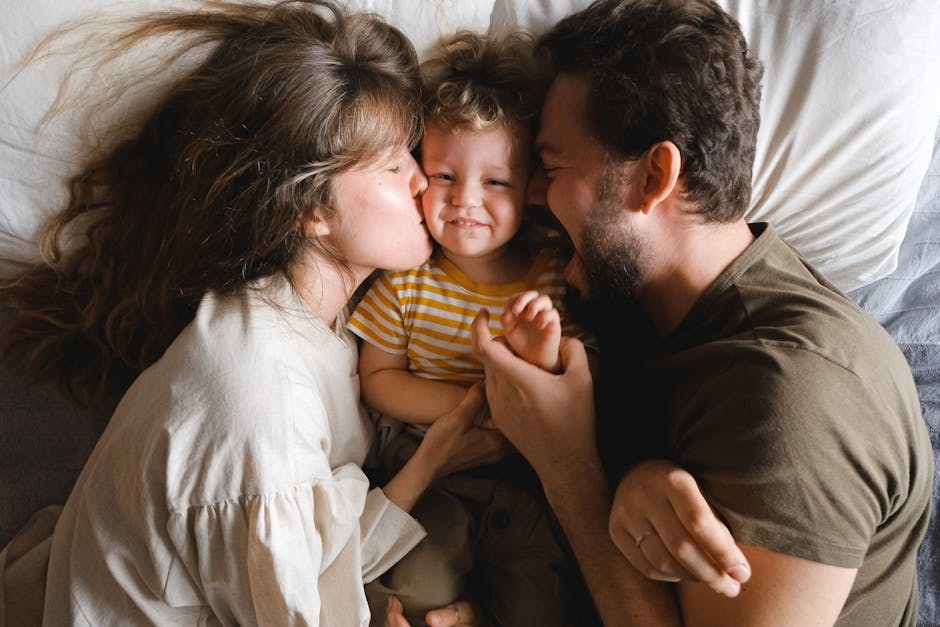Everyone can feel a flutter of doubt before meeting someone new – it’s human. The trick is not to eliminate nerves, but to guide them so they serve you instead of sabotaging you. Dating rewards presence, warmth, and self-trust; when those qualities show up, the evening feels easier, conversation flows, and you enjoy the person in front of you. That’s what genuine confidence looks like on a date: a grounded sense that you are enough as you are, paired with the openness to discover another person. The ideas below reframe confidence as a set of small choices you can practice, rather than a personality you either have or don’t.
What confidence actually means in a dating context
People often imagine confidence as a dramatic makeover – louder voice, bolder moves, instant charm. On a date, it’s quieter and more practical. Confidence is the calm belief that you can handle whatever happens, that you can express yourself without overthinking, and that your value doesn’t rise or fall based on someone else’s reaction. That belief shows up in subtle ways: how you hold eye contact, how you laugh at your own slipups, how you ask a follow-up question because you’re truly curious. Confidence is not a costume you put on; it’s a comfortable fit with your real character.
Think of how you are with your closest friends – effortless, unguarded, maybe a little goofy. Dating confidence aims for that same relaxed authenticity, just tuned to a new audience. You don’t need to perform. You need to be congruent: your words, tone, and body language saying the same thing. When they align, you feel steadier, and that steadiness is what other people recognize as confidence.

Why confidence matters – and how much is just right
Too little confidence can read as uncertainty; too much can tip into showiness. The sweet spot isn’t about volume – it’s about respect for yourself and for your date. With balanced confidence, you can admit you’re nervous and still hold a conversation, you can share an opinion and still leave space for theirs. You’re not chasing approval; you’re sharing an evening. That balance keeps you attentive and generous, not self-conscious or performative. It also makes the experience kinder to you: if the chemistry isn’t there, you still walk away feeling intact because your confidence isn’t up for negotiation.
A practical playbook for the evening
Building confidence is less about hype and more about preparation mixed with self-acceptance. Use the steps below as a flexible sequence – you can reorder them, linger where you need, and return whenever your nerves spike. Each one strengthens confidence in a specific, down-to-earth way.
-
Take inventory of what makes you a good date
Start with a simple list of qualities you genuinely like about yourself – skills, quirks, values, habits. Maybe you’re an attentive listener, a patient problem-solver, or the person who always remembers birthdays. Perhaps you make a mean pasta sauce, fold intricate origami, or can recommend a novel that fits any mood. Writing these down anchors confidence in facts, not fantasies. The point isn’t to show off – it’s to remind yourself why you’re worth getting to know. When you see your strengths in black and white, confidence feels earned rather than borrowed.

-
Be honest about your rough edges – then choose a gentle upgrade
Confidence grows when you know where you wobble and how you’ll handle it. List a few habits that trip you up: interrupting, rushing through silences, apologizing too much, or checking your phone when anxious. Pick one small improvement you can practice tonight – pausing before responding, letting a quiet moment breathe, or putting your phone on do not disturb. The goal isn’t perfection; it’s progress. Owning your learning curve paradoxically strengthens confidence because you’re no longer pretending to be flawless.
-
Dress for yourself – not for an imagined approval
Wear something that fits well and feels like you. Confidence rises when you’re not distracted by tugging sleeves or second-guessing your outfit. Choose textures that sit comfortably and colors that flatter your skin. Skip the overhaul; you don’t need a new persona, just an outfit that matches your personality and the venue. When you like your reflection, you walk differently – and that quiet shift supports confidence without a single word.
-
Practice kind self-talk in the mirror
Spend a minute with your reflection and say out loud what you appreciate: “I’m thoughtful,” “I’m curious,” “I’m here to enjoy this.” Hearing your own voice back you up smooths frayed nerves – the brain takes vocalized messages seriously. You’re not chanting empty slogans; you’re reminding yourself of truths. This tiny ritual tunes your attention toward strengths, which is where confidence likes to live.

-
Keep grooming and enhancements light and deliberate
If you enjoy makeup or styling, use it to highlight one feature – eyes, lips, skin – rather than layering everything at once. The same applies to hair or accessories: choose a focal point. Restraint communicates ease, and ease communicates confidence. You’re aiming for “put together,” not “trying desperately.” When you feel polished without feeling costumed, you free up energy for connection, which in turn feeds confidence throughout the evening.
-
Use posture – or a little height – to reset how you feel
Subtle physical cues can nudge your mood. Lengthen your spine, relax your shoulders, and lift your sternum slightly as if a string were guiding it upward. If you like the feel of added height and can wear it comfortably, a modest heel can change your perspective just enough to reduce slouching. The point is alignment, not endurance. An aligned stance makes breathing easier, voice steadier, and gestures more relaxed – small signals that amplify confidence without theatrics.
-
Run a quick pre-date systems check
Before you meet, give yourself two minutes: check for lint or stains, freshen your breath, smooth fabric, secure any tags, and confirm you’ve got essentials like payment, ID, and a small backup plan for transport. Tuck a little emergency cash or a card in a safe pocket. Preparation doesn’t eliminate surprises, but it shrinks the list of things that could rattle you. Fewer worries equal more bandwidth for presence – and presence is the daily driver of confidence.
-
Reframe embarrassment as a story in progress
Spilled water, a fumbled joke, spinach on a tooth – it happens. Treat mishaps as plot twists, not verdicts. A quick laugh, a simple “whoops, my bad,” and a calm reset demonstrate that you can navigate life’s small chaos. That resilience reads as confidence because it is confidence: trust in your ability to recover. Most people find grace under pressure more appealing than flawlessly choreographed moments.
-
Let your smile do quiet heavy lifting
A genuine smile softens your face and signals warmth. You don’t need a grin plastered on all evening; think of it as a ready resting place your expression returns to. When you smile while listening, you invite more sharing. When you smile after your own awkward pun, you show you’re in on the joke. This uncomplicated gesture reduces tension – yours and theirs – and that ease fortifies confidence in real time.
-
Make your date feel seen
Turn curiosity into questions about their work, hobbies, recent discoveries, or the small joys of their day. Follow up on details: “You mentioned you like hiking – what trail makes you feel most alive?” Attention is attractive. As you build a conversational rhythm, you’ll feel your footing solidify. Confidence often blooms when focus shifts outward – you stop auditing yourself and start engaging. If the talk stalls, name it lightly and pivot: “I blanked on what I was going to say – tell me about that playlist you love.” Candor like this keeps the mood human and connected.
-
Enjoy the moment without managing the outcome
Release the need to impress or engineer chemistry. Aim for a good conversation and a kind goodbye, whatever the result. Paradoxically, when you stop trying to control the night, your confidence climbs – because you’re trusting yourself to handle either path. If it goes beautifully, wonderful. If it’s just okay, you still gathered practice, stories, and clarity about what you enjoy. Confidence grows from showing up, not from guaranteed wins.
Turn the dials: small habits that keep confidence steady
Confidence isn’t a one-time surge; it’s a set of habits that prevent overthinking and help you return to yourself. Consider these mini-practices as dials you can adjust mid-date. They don’t add new rules – they support the core steps you’ve already read.
-
Speak at a measured pace. When nerves spike, words race. Slow down just a touch and add a breath before answering. That micro-pause projects thoughtfulness and gives your mind room to choose clearer language. The calmer cadence feeds back into confidence because you feel more in control of your voice.
-
Use open body language. Uncross your arms, angle your torso toward your date, and keep your hands visible. These signals tell your brain you’re safe – which softens tension and restores confidence without force.
-
Let silence help you. A quiet beat isn’t failure; it’s space. Sip water, smile, or look around the venue for a detail to comment on. Treat silence as a comma, not a period – that reframing preserves confidence when the conversation takes a breath.
-
Return to your strengths list. If self-doubt flares, mentally revisit two qualities from your earlier inventory. Pair that reminder with a small action, like asking a specific question. Action reinforces confidence much faster than ruminating.
Common myths that drain confidence – and better beliefs to replace them
Some ideas sound sensible but quietly erode ease. Replace them with beliefs that support steadier confidence.
-
Myth: “I must be universally appealing.”
Better belief: “I’m aiming for a good match, not universal applause.” Tastes differ – that’s not a problem to solve, it’s the point of dating. Let this free you to show who you really are; confidence flourishes when you stop diluting yourself.
-
Myth: “If I’m nervous, I’m failing.”
Better belief: “Nerves mean I care.” Step into the moment anyway. Confidence often arrives a few minutes after you begin – like a muscle that warms as you move.
-
Myth: “I need perfect lines.”
Better belief: “I need honest connection.” Authentic follow-up questions beat rehearsed monologues every time. Confidence grows when you lean on curiosity instead of scripts.
Bring it all together before, during, and after
Before: Pick your outfit, do the mirror ritual, and skim your strengths list. Decide on one habit to practice – maybe slowing your pace or letting silence breathe. This intentional setup cues confidence before you step out the door.
During: Sit or stand with easy alignment, smile when it’s natural, and ask questions that invite stories. If a blip happens – a missed word, a clumsy toast – respond lightly and move on. Confidence doesn’t require you to be slick; it asks you to be steady.
After: On the way home, resist the spiral of over-analysis. Note two things you liked about your presence – perhaps you listened well and stayed playful – and one gentle improvement for next time. This review keeps confidence rooted in learning, not in nitpicking.
A note about balance so confidence stays kind
Real confidence is considerate. It makes room for your date’s comfort levels, opinions, and boundaries. It does not bulldoze the conversation, interrogate, or self-advertise. It also includes kindness toward yourself: taking a breather if you feel overwhelmed, naming that you’re a bit nervous, or ending early if the vibe is clearly off. Boundaries and empathy are not detours from confidence – they are its foundation.
If the night surprises you
Some evenings sparkle; others misfire. Either way, you can treat the experience as worthwhile. When it’s great, let that reinforce your sense of self – not inflate it. When it’s underwhelming, let it reinforce your resilience – not deflate you. Confidence is the throughline that says, “I can enjoy this, learn from it, and remain myself.” That steadiness makes the next invitation easier to accept – and the next conversation easier to start.
Your quiet checklist for the door handle moment
Look in the mirror and say one true, kind sentence about yourself. Confidence likes proof; give it a line it can believe.
Stand tall, soften shoulders, and breathe low. Your body will send your mind the memo that you’re okay – and confidence will follow.
Carry the essentials and a simple backup plan. Preparedness smooths the noise that shakes confidence.
Lead with curiosity. When you focus outward, your confidence stops staring at itself and starts participating.
Allow the night to be what it is. Letting go of outcome turns down pressure – and pressure is the main rival of confidence.
Final encouragement for a calmer first step
You don’t need to manufacture a new persona to date well. You need to show up as the person your friends already trust – with a little polish, a little preparation, and the willingness to laugh when things get wobbly. That’s the usable version of confidence: dependable, humane, and flexible. Bring it with you, let it stretch its legs as the evening unfolds, and watch how much easier it becomes to meet someone new.